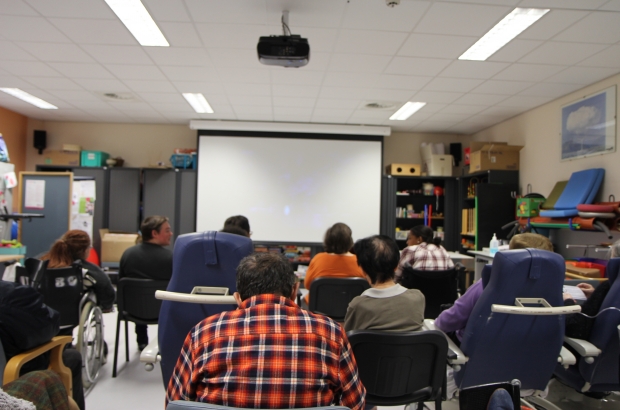- Daily & Weekly newsletters
- Buy & download The Bulletin
- Comment on our articles
New initiative offers patients a cinema break
A growing initiative is bringing cinema to patients in hospitals across the country. At the end of December, Cinema for All launched in its fifth hospital, and the organisation plans to add another 10 sites to its roster of participating health-care centres by the end of the year.
The project was set up by uFund, which finances films through Belgium’s tax shelter system. The system encourages companies to invest in movie production in return for tax breaks. They’ve now furnished hospitals across the country with projectors, Blu-ray players and screens.
UFund spokesperson Maxime Housiaux explains how it began at the Queen Astrid site of Brussels’ Brugmann hospital. “I know the director of this hospital, so we decided to do a pilot here in May,” he says. “We had several screenings during the year, followed by a debriefing with hospital staff, who thought it was fantastic. They said it perfectly met the needs of patients and doctors.”
That was the validation he needed to roll out the project, so he proposed it to other hospitals, including the Rekem psychiatric centre in Limburg and Inkendaal rehabilitation centre in Flemish Brabant. Ufund provides the material and pays all the royalties for the twice-monthly screenings, while the hospitals provide a room and inform patients through posters on noticeboards and leaflets distributed with meals.
Social rehabilitation
The hospitals’ role, though, is much more than that. They have to make sure the patients are able to get from their rooms to the screening, often in wheelchairs or even beds, and schedule the perfect time between therapy, meals and visiting hours. It’s a tight schedule, Housiaux says, but they know how positive it is for patients.
“We wanted to give something back to the community, something related to our core business, and it was obvious: bringing movies to people who don’t have access to cinema,” he says. “We’ve started with hospitals, and we hope that in future we’ll be able to bring it to refugee centres and so on.”
The Queen Astrid site is dedicated to rehabilitation, and its medical co-ordinator, Dr Agnieszka Gierasimowicz-Fontana, has been involved in Cinema for All from the start. “Along with the physical aspect, rehabilitation also means social integration,” she explains. “By giving culture to patients, we’re also giving them a piece of normal life.”
The films are chosen by the hospital from a catalogue provided by uFund, based on two important parameters: length and language. Many of the patients get tired easily and are unable to sit for long periods, so the films must be shorter than two hours. They also avoid films that need double subtitles.
“I’m into cinema myself, so I’ve seen perhaps 70% of the films that are chosen,” Gierasimowicz-Fontana says. “I try to choose ones I like, but I’m always curious to see what people’s reaction will be.”
For her, the most important aspect is the interaction screenings promote. “It means patients can discuss something other than their therapy and the hospital,” she says. “It’s a different interaction between us and them, too, and I like that very much. We have some patients who are so enthusiastic about it that they come back for the film even after they’ve been discharged.”
Photo courtesy uFund









